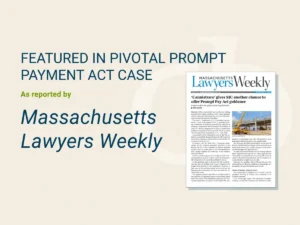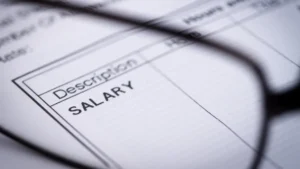The Massachusetts Advantage In Trade Secret Litigation: Using MUTSA And DTSA To Protect Your Competitive Edge
Many Massachusetts businesses rely on confidential know-how, code, and customer intelligence to compete. This article explains how CLP’s Massachusetts trade secret litigation attorneys can help you navigate the Uniform Trade Secrets Act and the federal Defend Trade Secrets Act work in practice, what courts look for, and how to move quickly to protect value.
Key Takeaways
- Massachusetts law provides strong tools, including MUTSA and DTSA, that support injunctions, damages, and attorneys’ fees in willful and malicious cases.
- Speed and preparation matter. Preserve evidence immediately, confirm that you used reasonable measures to protect information, and be ready to seek emergency relief.
- Chapter 93A may be available in some trade secret disputes. The interaction between MUTSA and 93A is not settled in every context, so pleading and strategy should be tailored to the facts.
How problems arise and what to do in the first seventy-two hours
Trade secret issues often surface during employee departures, partnership breakups, vendor transitions, or when a competitor begins winning business using methods or data that look familiar. At risk are a business’s secret sauce: customer and prospect lists, source code, product roadmaps, technical drawings, pricing and financial models, manufacturing processes, and research notes. If the information has independent economic value because it is not generally known, and you used reasonable measures to keep it confidential, it may qualify as a trade secret. Misappropriation occurs when someone acquires the secret through improper means, or uses or discloses it without consent.
The first seventy-two hours matter. As soon as you realize someone is taking your trade secrets, you should spring into action. Preserve devices and cloud data, suspend auto deletion, capture access logs, and identify who touched what and when. If a former employee is involved, focus on pre-departure activity and the early days at the new role. Useful proof includes unusual downloads, connecting external devices like flash drive or hard drives, forwarding materials to personal email, cloning file repositories, and suspicious development by a competitor that aligns with your protected information. A focused record improves your chances of obtaining a temporary restraining order or a preliminary injunction that stops ongoing use and protects value.
Your Massachusetts legal toolkit and how CLP commercial litigators use it
Most plaintiffs pursue a dual track case under the Massachusetts Uniform Trade Secrets Act, Mass. Gen. Laws ch. 93, §§ 42 to 42G, and the Defend Trade Secrets Act, 18 U.S.C. § 1836 et seq. Both statutes allow injunctive relief and damages, including actual loss and unjust enrichment, and both provide for attorneys’ fees and enhanced damages in willful and malicious cases. A federal forum can be useful for interstate conduct and discovery.
Chapter 93A can add leverage in business-to-business disputes that involve unfair or deceptive practices. However, the relationship between MUTSA and Chapter 93A is not fully settled in every scenario, especially when an insider takes your trade secrets, so the decision to plead 93A alongside MUTSA and DTSA should be made with care and based on the specific conduct at issue.
Our approach at CLP is practical. We move quickly to preserve evidence, build a clear chronology, and file targeted pleadings that request the return and deletion of trade secrets, reasonable forensic inspection, and restrictions tailored to the role and the information at issue. We model damages using actual loss and unjust enrichment, and we position the record for enhanced remedies where the facts support a finding of willful and malicious conduct.
Proving the case and maximizing remedies, from intent to prevention
Enhanced remedies depend on proof. Courts look for facts that show conscious disregard of known obligations, such as coordinated copying before resignation, concealment, wiping of devices or accounts, and immediate monetization of the information. If we can link the protected information to wrongful use in the marketplace and to resulting harm, we have a better argument for an injunction and a more persuasive damages model.
Prevention strengthens every case. In order for something to be your trade secret, the most important thing is that it is in fact secret. Courts evaluate reasonable measures to protect the proprietary nature of your information in context, and they expect controls that match the value of the information and foreseeable risks. A practical program includes role-based access and logging, clear labeling and handling rules, encryption, NDAs, and a documented offboarding process that collects devices, terminates access, obtains acknowledgments, and preserves data. Reasonable measures make it more likely that your information qualifies as a trade secret, and they make emergency relief more likely when problems arise.
FAQs
Do I need a noncompete to protect trade secrets?
No. Trade secret protection does not depend on a noncompete. Strong confidentiality agreements are helpful but reasonable security is essential to a trade secret claim.
How fast must we act if we suspect theft?
Immediately. As the saying goes, “you can’t un-ring the bell.” Once your secret is out, you can’t get it back in, so delay can undermine requests for emergency relief. Preserve devices and logs, notify counsel, and prepare a targeted motion for a temporary restraining order or a preliminary injunction quickly.
Can we sue in federal court even if everything happened in Massachusetts?
Often, yes, under the DTSA, 18 U.S.C. § 1836. A federal forum can be useful for interstate conduct and discovery. There are also strategic reasons why you may want to be in federal court instead of state court.
Will Chapter 93A always apply in a trade secrets case?
Not always. Chapter 93A may be viable in some business-to-business disputes. The relationship between MUTSA and 93A in this context is not fully settled, and pleading should reflect the specific facts.
What damages are available?
Actual loss and unjust enrichment are available under MUTSA, Mass. Gen. Laws ch. 93, §§ 42 to 42G, and DTSA, 18 U.S.C. § 1836. In willful and malicious cases, the statutes allow for attorneys’ fees and enhanced damages. Injunctive relief is often the most important short-term remedy.
Cole Law Partners Can Help
If you suspect a leak or believe a former employee is using your proprietary information, contact our commercial litigation team. We will triage promptly, secure evidence, and, where appropriate, move for emergency relief. Contacts us today.




